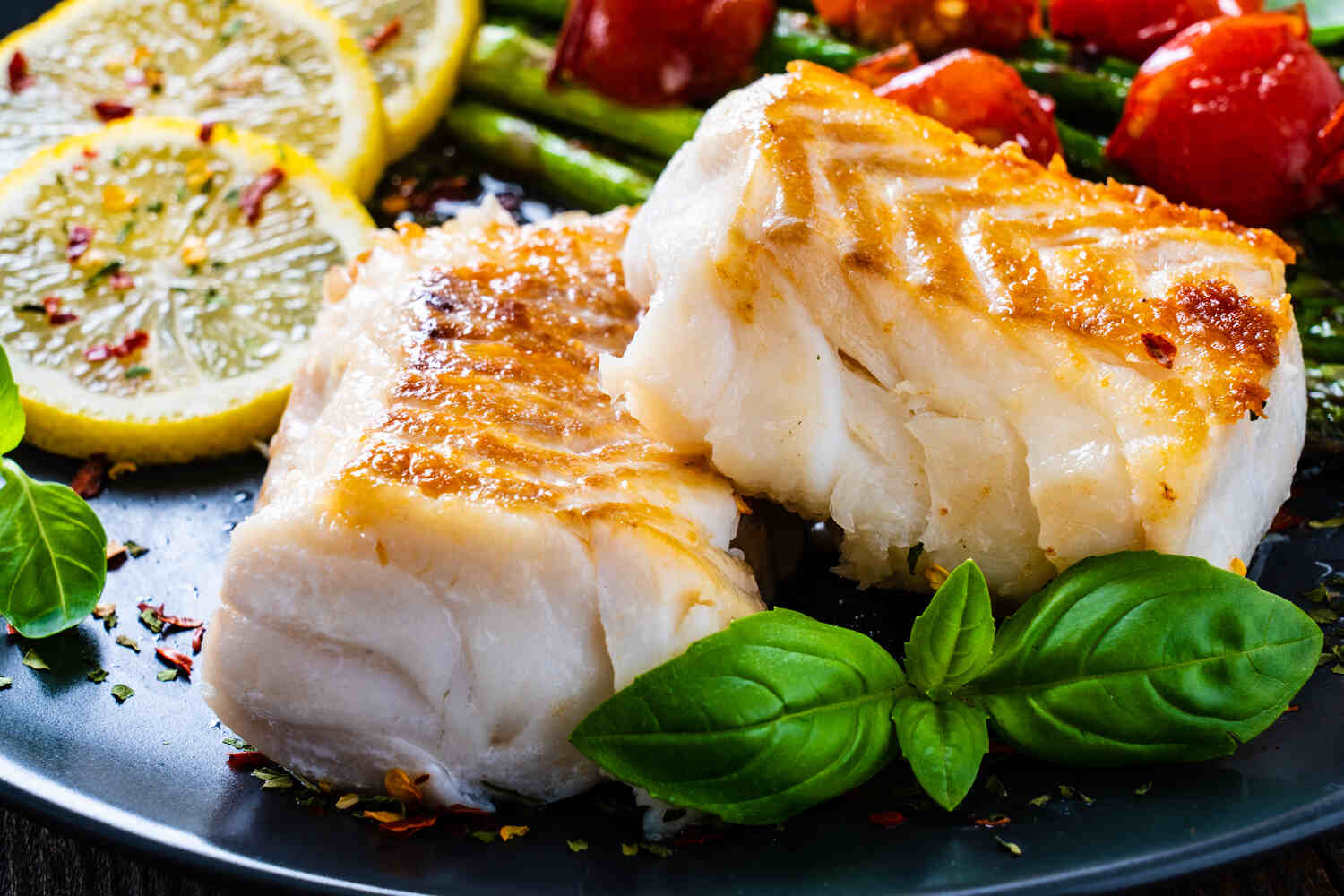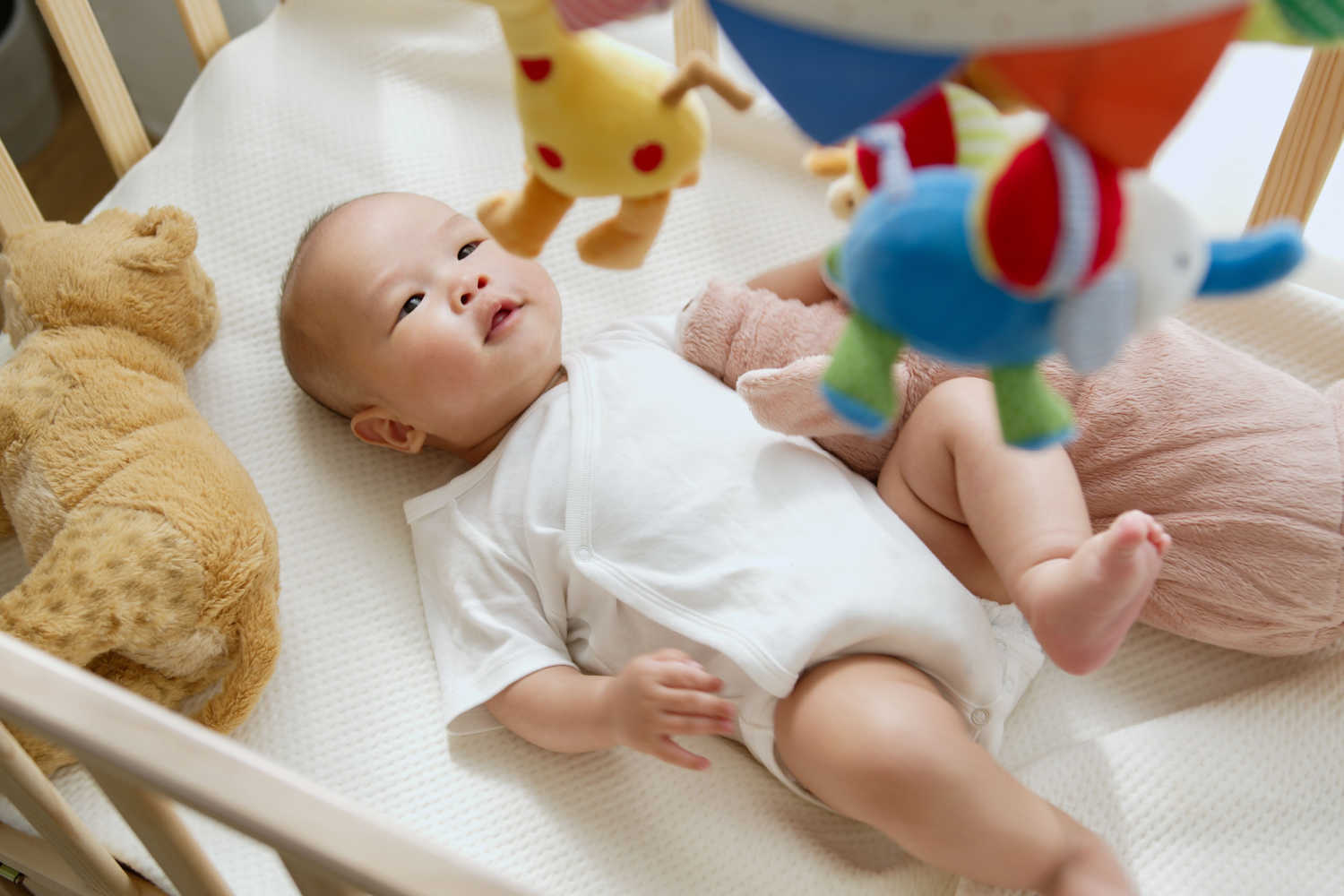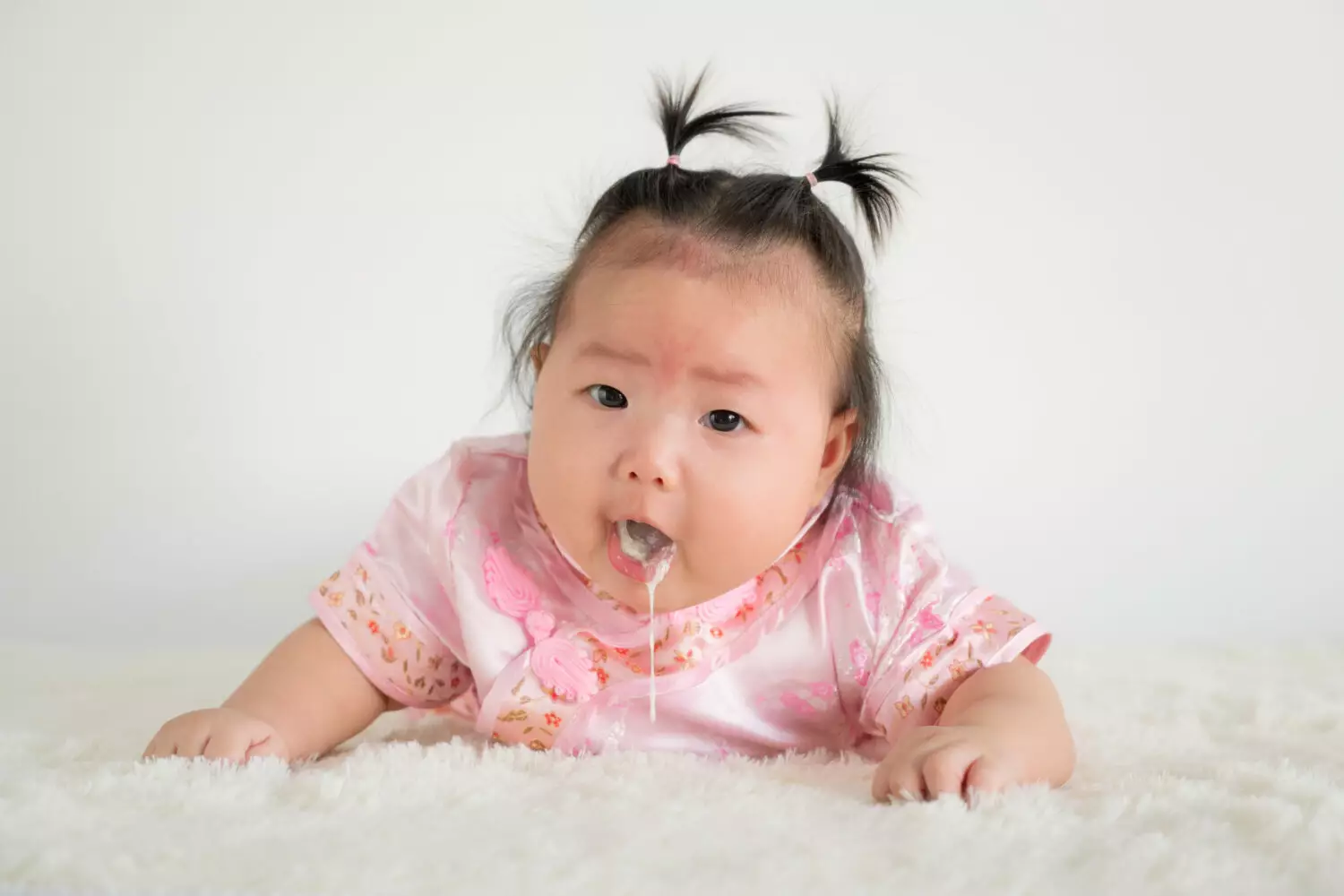
Is It Safe To Consume Fish While Breastfeeding?
7 min readWritten by Swati Dave


Motherhood is a joyful adventure that includes caring for the baby’s well-being. Breast milk is recommended as the best way to provide nutrients to newborns. It is full of antibodies that no other formula food contains. Lactating women benefit from nutrient-dense diets, which promote higher breast milk production. Breast milk production can be strenuous for a nursing mother’s body. A healthy and diversified diet is crucial for nursing mothers to give appropriate nutrients (1). If you enjoy fish, you may be wondering if it is safe to consume fish while breastfeeding.
Fish has several benefits throughout breastfeeding time. It is critical to understand how to incorporate it into your diet for maximum health benefits. If you are a fish lover and wondering if it can be included in your diet while you are breastfeeding your little bundle of joy then continue reading to know all about it.
In This Article
- Is It Safe To Consume Fish While Breastfeeding?
- Benefits Of Including Fish In Your Diet While Nursing
- Fish That Can Be Safely Consumed During Lactation
- How To Identify Whether The Fish Is Fresh?
- Side Effects Of Consuming Fish While Breastfeeding
- When to Avoid Fish When Breastfeeding
- FAQ’s
Is It Safe To Consume Fish While Breastfeeding?
Consuming fish while breastfeeding is not only safe but also healthy when done in moderation. Fish is a nutritious food that nursing mothers should include in their diets. Choose 8 to 12 ounces (225-340 grams) of low mercury cooked fish like salmon, shrimp, pollock, and catfish every week to help your baby’s brain development (2). Fish is high in key nutrients that benefit both mother and child, making it an excellent choice for a healthy diet while breastfeeding.
Benefits Of Fish While Breastfeeding

Fish while breastfeeding can provide a good source of protein and vitamins such as D and riboflavin. They are great sources of minerals such as calcium, phosphorus, iron, zinc, iodine, magnesium, and potassium.
Breast milk is related to short- and long-term health benefits for both newborns and their mothers (3). Lactating women can assist their infants’ and their health by eating a balanced diet.
Here are the benefits of including fish in the menu of a breastfeeding mother:
1. Improves brain development
Fish contains Omega 3, DHA (DocosaHexaenoic Acid), and EPA (Eicosapentaenoic Acid), improving the baby’s nervous system (4). These fatty acids are also important for your baby’s eye development.
2. Nutrient-rich
Low in saturated fat, fish is high in quality protein, vitamin D, iron, iodine, and choline vital for the health of both mother and baby.
3. Healthy Early Childhood Development
Babies whose mothers eat fatty fish while breastfeeding often display advanced indicators of early childhood development (5). It focuses on the neurodevelopment of children in their early years (0-8 years old), including nutrition, fine motor skills, mental development (problem-solving), and personal-social communication.
4. Prevent Postpartum Depression
Fish and omega-3 fatty acids can help with postpartum depression in lactating women.
Fish That Can Be Safely Consumed During Lactation

Different varieties of fish such as cod, herring, pollock, catfish, salmon, tilapia, lobster, crab, tuna, and shrimp provide various distinctive health benefits to the mother during breastfeeding. The fish that can be safely included in your diet while you are breastfeeding is:
- Salmon are low in mercury and allergens, making them safe for nursing mothers to consume. It’s high in omega-3 fatty acids and vitamins, making it a great choice for brain and heart health.
- Pomfrets/Butterfish are high in vitamins A, B3, B12, niacin, and E. They are known to improve the digestive system of babies and make their skin glow. The presence of phosphate, magnesium, and vitamin D promotes strong bones. Omega-3 fatty acids reduce inflammation, increase heart health, and improve blood vessel function.
- Rohu and Catla freshwater fish are easily digested, low in fat, and rich in nutrients including zinc, iron, and calcium. These fish contain very low levels of mercury. Rohu is high in protein and promotes overall growth, healing, and maintenance of bodily tissues in both nursing moms and their babies. As a low-fat fish, it makes an excellent dietary choice.
- Hilsa, a seasonal oily fish high in omega-3 and omega-6 fatty acids, promotes heart health. It is high in vitamins A, D, and E, which promote eye health, prevent night blindness, and protect against rickets. Rich in minerals such as iodine, selenium, zinc, and potassium; promotes thyroid health and bone maintenance.
- Sardines/Tarli is an excellent source of Omega3, protein, calcium, copper, vitamin B2, and B12. Sardines are also excellent for the bones since they include Vitamin D and phosphorus, which strengthen the bone matrix.
Furthermore, lactating mothers can consume dried small fish in powder or chutney form as part of their daily diet (6). If fish hasn’t been a regular component of their diet, experiment with novel methods to prepare it and incorporate it into other meals. This may be an effective technique for combating nutritional deficits in infants and mothers throughout the first 1000 days of life.
How To Identify Whether The Fish Is Fresh?

Purchase fish from a reputed store to reduce the risk of foodborne illness. By following these simple procedures, you may easily assess whether the fish is fresh, resulting in a delicious and nutritious seafood experience.
1. Appearance
Look for clear, firm flesh, shiny skin, clear eyes, and lively colors. Fresh fillets should have moist skin that is free of dullness or discoloration.
2. Smell Test
Fresh fish should have a clear, fresh, and mild ocean-like fragrance that is not sour, fishy, or ammonia-like odor.
3. Texture
Press on the flesh; it should bounce back into shape and feel solid, not mushy or leave an imprint.
4. Gills
Pink or red gills indicate freshness, whilst gray or brown gills suggest age.
5. Time and Source
Buy from trusted sellers and check the catch date for the freshest possibilities.
Side Effects Of Consuming Fish While Breastfeeding

While fish consumption has many benefits, it is not without its share of demerits. Some of them are as follows:
a. Mercury Risks
Certain forms of seafood, such as shark, swordfish, and king mackerel, have high levels of mercury, which are detrimental to child development.
b. Methyl Mercury Absorption
The body quickly absorbs methylmercury from fish; nevertheless, even in small concentrations in breast milk, it poses a risk to the baby’s brain.
c. Brain Development Impairment
Even minor exposure to mercury can impair a baby’s brain growth and development when breastfeeding.
d. Impaired Cognitive Functioning
Cognitive skills that the brain uses to think, read, learn, remember, reason, and pay attention, and motor skills that involve physical movements the baby makes with his arms, feet, legs, or the entire body are affected by the mercury present in fish,
e. Contamination
Fish harvested from polluted rivers contain contaminants that can be passed on to babies through breastfeeding. Mercury levels are higher in larger and predator fish because they consume smaller mercury-containing fish. Canned white tuna has higher mercury than lighter tuna varieties.
Keep in mind that a three-ounce meal of fish is about the size of a deck of cards. This guideline helps mothers determine how much fish they should eat. While fish has both benefits and drawbacks, it is recommended that you speak with a dietitian before including it in your postnatal diet.
When to Avoid Fish When Breastfeeding

Fish is an amazing source of protein and essential nutrients for nursing mothers. When a mother consumes fish, mercury can be transferred into her breast milk (7). Consult a dietitian nutritionist to determine how much and what type of fish to eat.
- Eat various kinds of fish.
- Before cooking, thoroughly clean and wipe the fillets with plain water.
- Make sure the intestines and scales have been removed.
- Before cooking frozen fish, allow it to reach room temperature.
- Cook the fish on a rack until the fat drips off.
- Do not make sauce or gravy from the fat drippings.
Options for cooking fish include
- Broiling,
- Grilling,
- Poaching,
- Roasting,
- Air frying,
- Pan-frying with the skin side down.
- If you eat fish caught by family or friends, limit your intake to one dish and avoid eating any more fish that week.
Eating fish while breastfeeding is both safe and healthy for the mother and the baby. Fish is a good source of lean protein, omega-3 fatty acids, which help infants’ brain development, and a variety of other essential nutrients that benefit both maternal and infant health. Incorporating fish into your breastfeeding diet enhances overall health and gives your baby a healthy start. Consult a dietitian nutritionist for personalized nutritional guidance while breastfeeding.
FAQs
1. Can I Eat Raw Fish And Sushi When Breastfeeding?
No, breastfeeding moms can not eat raw fish and sushi. Enjoy sushi sparingly at a high-quality restaurant.
2. How do I Know That The Fish I Am Eating Is Fresh?
Trust your gut instincts to know that the fish you are eating is fresh. Perfectly cooked fish should not smell fishy. It should have a fresh fragrance. Remember, if in doubt, throw it out.
3. Does Fish Cause Gas in Breastfed Babies?
If you experience any digestive issues after eating fish, such as gas, bloating, diarrhea, or nausea, consider limiting or eliminating it from your diet for a few days. Your breastfed baby may also have digestive troubles.
Reference
- Nutritional Status of Breastfeeding Mothers and Impact of Diet and Dietary Supplementation: A Narrative Review – [https://doi.org/10.3390/nu16020301]
- Advice about Eating Fish – [https://www.fda.gov/food/consumers/advice-about-eating-fish]
- The importance of nutrition in pregnancy and lactation: lifelong consequences – [https://pubmed.ncbi.nlm.nih.gov/34968458/]
- Fish, Shellfish, and Children’s Health: An Assessment of Benefits, Risks, and Sustainability – [https://www.ncbi.nlm.nih.gov/pmc/articles/PMC6864235/]
- The Importance of Consumption of Fish Meat in Early Childhood Period in Terms of Healthy Development – [https://dergipark.org.tr/en/pub/egirdir/issue/36733/405244]
- Dried small fish provide nutrient densities important for the first 1000 days – [https://pubmed.ncbi.nlm.nih.gov/33942983/]
- Breastfeeding mothers should minimize exposure to mercury in their diets, at home, and at work. – [https://www.cdc.gov/breastfeeding/breastfeeding-special-circumstances/environmental-exposures/mercury.html#]

Swati Dave,Ph.D. (Home Science) Foods & Nutrition
Responses (0)
Want curated content sharply tailored for your exact stage of parenting?
Related articles

Green Parenting – 7 Ways To Raise An Eco Baby

Puppet Play For Babies – How it Helps in Baby’s Development

Wheels on the Bus Rhyme For Babies

Cot Mobiles For Babies – How it Helps in Baby’s Development

FPIES in Babies – What is it, How Common and Symptoms

How to deal with unexpected challenges when traveling with a newborn
Sponsored content
Discover great local businesses around you for your kids.
Get regular updates, great recommendations and other right stuff at the right time.





